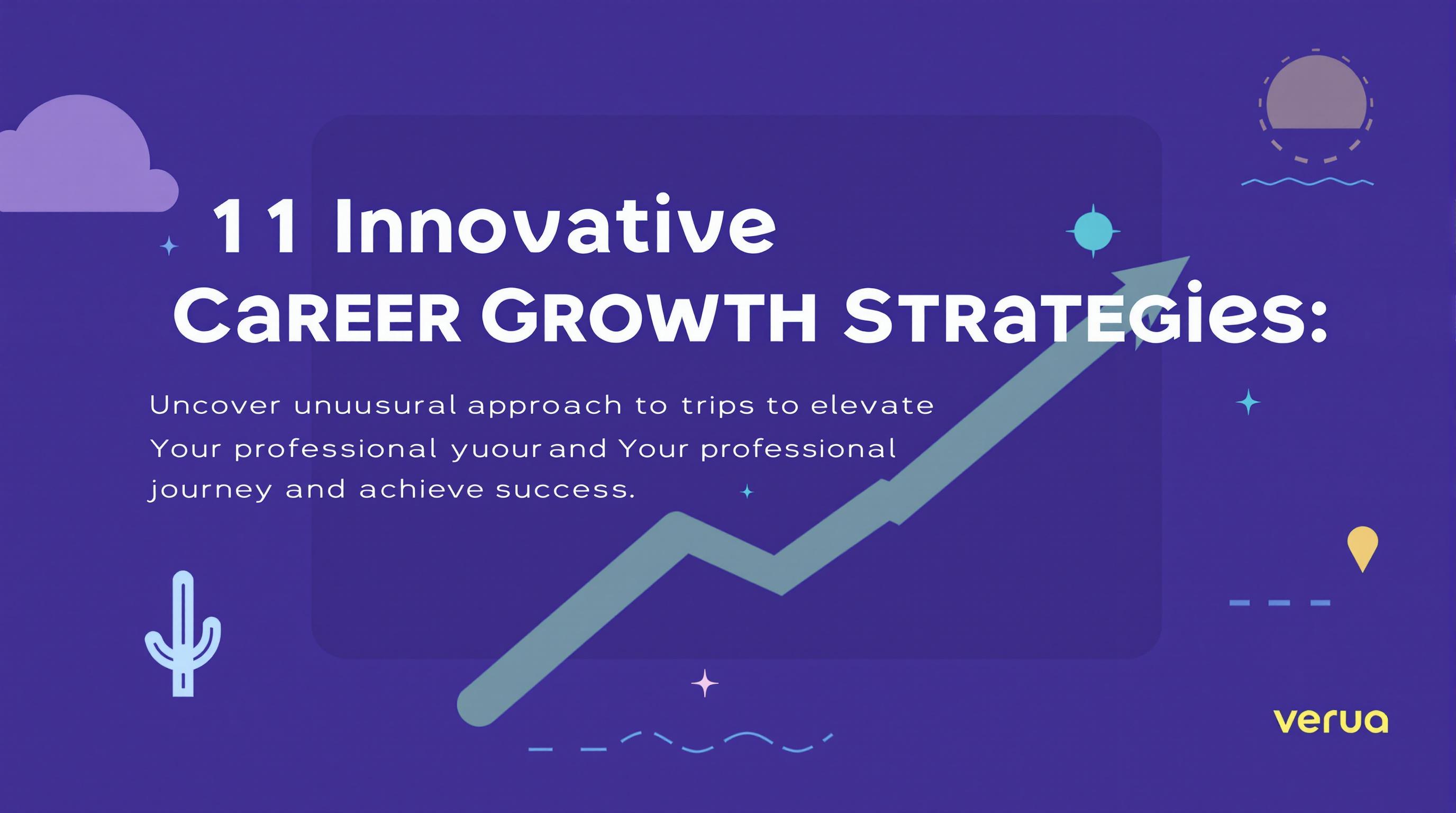Related Articles
- Navigating the Talent Labyrinth: How Emotional Intelligence Is Shaping New Hiring Practices in Unseen Markets
- Behind the Scenes: How Automating HR Processes Is Redefining the Future of Recruitment and Job-Seeking Strategies
- Beneath the Surface: Unveiling the Surprising Role of Environmental Sustainability in Shaping Future Careers
- Exploring the Quirky Side of Remote Work: How Hobbies Are Fueling Professional Success in Unexpected Ways
- How the Remote Revolution is Inspiring Unlikely Friendships Across Continents: A Study of Global Connectedness
- The Unforeseen Bond: How Virtual Coworking Spaces Foster Unexpected Connections Amidst Remote Work
7 Unconventional Career Growth Strategies: Leverage Unique Insights to Propel Your Professional Evolution and Distinguish Yourself
7 Unconventional Career Growth Strategies: Leverage Unique Insights to Propel Your Professional Evolution and Distinguish Yourself
7 Unconventional Career Growth Strategies: Leverage Unique Insights to Propel Your Professional Evolution and Distinguish Yourself
1. Embrace a Diverse Skill Set
In today's rapidly changing job market, possessing a diverse skill set has become a significant advantage. Rather than concentrating exclusively on industry-specific skills, individuals can enhance their employability by incorporating complementary abilities from different fields. For example, a marketing professional could benefit immensely by developing basic data analysis skills, making them valuable for data-driven decision-making.
Diversity in skill sets leads to increased creativity and innovation. According to a study by the World Economic Forum, multidisciplinary teams often outperform their single-discipline counterparts, as they can approach problems from multiple perspectives (World Economic Forum, 2020).
Furthermore, continuous learning and adding new skills can help professionals adapt to shifting market demands, keeping them relevant and competitive. As industries evolve, so too must the skill sets of their workforce; therefore, embracing diversity should be seen as a career necessity.
2. Build a Personal Brand
In an age where online presence is critical, creating a strong personal brand can significantly influence career trajectories. A personal brand reflects who you are as a professional and helps you clarify your value proposition to potential employers or clients. Engaging in consistent self-marketing through social media platforms like LinkedIn can enhance visibility and foster networking opportunities.
A well-crafted personal brand highlights unique strengths and showcases expertise in specific areas, making one stand out in a crowded job market. Consider utilizing content creation methods, such as blogging or video production, to share your insights and knowledge, elevating your brand while creating an audience (García, 2021).
As industries become increasingly competitive, the ability to communicate one's unique value is invaluable. A strong personal brand can open doors to opportunities that may have otherwise remained inaccessible.
3. Network Outside Your Comfort Zone
Traditional networking often focuses on connecting with peers in one's own field. However, venturing outside of familiar circles can yield unique insights and opportunities. Engaging with professionals from diverse industries can introduce fresh ideas and perspectives that challenge conventional thinking.
Attending events such as cross-industry conferences or joining multi-disciplinary groups can facilitate these connections. By embracing conversations with individuals from varied backgrounds, one increases the chances of discovering new trends and innovative solutions that can be applied to their field (Smith et al., 2020).
This strategy also allows for the cultivation of a broader support network that can provide guidance and mentorship. As the adage goes, "your network is your net worth," affirming the importance of diverse relationships in professional growth.
4. Leverage Mentorship Creatively
While it is common to seek mentors within one’s field, creatively leveraging mentorship can lead to unexpected growth. Consider mentoring relationships across different industries or levels of experience. A mentor outside your profession can offer fresh perspectives that challenge ingrained assumptions and stimulate personal development.
Moreover, reverse mentoring—where a younger or less experienced individual mentors a senior professional—can also be mutually beneficial. This dynamic allows for the exchange of knowledge regarding emerging trends, technologies, and generational insights that can be instrumental for career evolution (Hagel & Brown, 2021).
Establishing diverse mentorship connections can create a rich tapestry of support and guidance that propels one’s career forward in unpredictable and enriching ways.
5. Emphasize Emotional Intelligence
Emotional intelligence (EQ) significantly impacts career success, often more than traditional intelligence (IQ). By prioritizing the development of EQ, individuals enhance their ability to interact effectively with colleagues, navigate workplace complexities, and build strong teams. Recognizing and managing one's emotions, along with empathizing with others, fosters an atmosphere of collaboration.
Studies show that EQ is a predictor of leadership success, as emotionally intelligent leaders can inspire and motivate their teams, ultimately driving productivity (Goleman, 1995). In today's workplaces, where interpersonal relations are key, honing EQ abilities could set one apart from others with similar technical skills.
Investing in emotional intelligence development through courses, workshops, or self-reflection can lead to heightened career advancement and personal fulfillment. By distinguishing oneself through superior interpersonal skills, professionals can create lasting impressions and opportunities.
6. Seek Out Challenging Projects
Taking on challenging projects, even beyond regular job responsibilities, can propel career growth significantly. Seeking out complex assignments pushes individuals beyond their comfort zones, encouraging skill acquisition and problem-solving capabilities. Often, the most profound learning occurs in challenging situations where individuals must navigate obstacles and innovate.
Engaging with tough projects can also enhance visibility within an organization. Successfully completing demanding tasks demonstrates dedication and capability, impressing superiors and positioning oneself for promotions or new opportunities.
Moreover, navigating challenges fosters resilience—a key trait for long-term success. Embracing discomfort leads to significant professional evolution, allowing individuals to emerge as adaptable leaders in the face of adversity.
7. Commit to Lifelong Learning
The pursuit of knowledge should never cease, especially in an era defined by rapid technological advancement and evolving workplace paradigms. Committing to lifelong learning ensures individuals remain relevant and equipped with the latest skills and knowledge. This commitment can manifest in various ways, such as taking online courses, attending workshops, or participating in webinars.
Research indicates that individuals who continuously seek knowledge are more likely to advance in their careers and can better adapt to shifts in their industries (Edinburgh University, 2021). The ability to learn new skills and assimilate knowledge efficiently sets a benchmark for personal and professional growth.
Furthermore, establishing a habit of regular learning encourages curiosity and innovation, fostering a mindset that embraces change. In a world where disruption is commonplace, lifelong learners are best positioned to thrive, evolve, and lead their industries.




